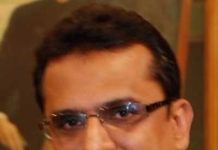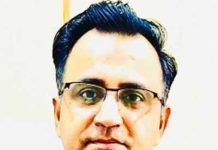Since the very inception of Pakistan, democracy has been facing gigantic challenges which stand as a stumbling block to take firm roots in the country. In the very initial days, democracy was obstructed by increased influence of military, bureaucracy and socio-political elites. On the other hand, lack of national level leadership, early demise of the Father of the Nation Quaid-i-Azam, weak political culture, absence of constitutional machinery, and petty-politicians further weaken the democracy at its very early stage in the country. In such a way, democracy has not taken firm roots in the country till today. Moreover, Pakistan as an independent and sovereign country has spent 73 years; more than half of it constitutes military rule in country, and rest of the years’ deep-state directly or indirectly influenced and manipulated the civilian regimes as per its whims.
No doubt, the past legacy of weaker civilian regimes and stronger deep-state exists today. Its manifestations can be gauged from the fact that today there is no head of institution that is not retired military general. From national carrier (PIA), National Disaster Management Authority (NDMA), Pakistan Steel Mill (PSM) to China-Pakistan Economic Corridor (CPEC) Authority Chairman. Every vacant post at state level is filled by the retired generals. Indeed, it shows either civilians are inefficient, incapable or indiscipline or it is only the deep-state which is more capable and considerable for national institutions. However, it is essential to mention here that it was Jinnah – a civilian political leader who made Pakistan a reality for Indian Muslims, it was Nelson Mandela – a civilian leader who led the Africans to the independence, and it was Marten Luther jar who struggle for the equality and emancipations of the colored people in America.
So, freedom, equality, independence and progress lies only in ensuring a real democracy in the country. For it, the rule of law, free and fair elections, press freedom, healthy political culture, tolerant political culture, autonomous institutions and supremacy of the constitution is much needed to ensure across the board.
Taking into consideration the present state of the affairs, it presents a very bleak and dismal picture. Opposition and the government stand a mile apart. Parliament has become a visiting place for politicians where they come and abuse each other without any productive legislation-making. Further, TV talk shows provideanother platform to unearth their past and present for consuming their hour while debating without any fruitful outcome on national issues. Similarly, freedom of speech and expression, protection of minorities and weaker class, free and fair justice, and social and economic justice have become a pipedream in the country. In such a way, the fundamental aim of the democracy that is a government by the people and for the people is missing in today’s Pakistan.
Apart from that, political polarization is another blow to democracy during the period of the pandemic. Potentially, it is weakening the democracy in the country because the government at the centre and provincial government of the Sindh are not on the same page to contain the deadly virus. Moreover, the Pakistan Democratic Movement (PDM) led by combined opposition has been staging the mammoth power show since October; it is totally unconvinced to pause its political processions and risking the lives of the thousands in danger. In fact, PDM is in no mood to comply the SOPs of the government and its warnings. Although,PDM termed the government action and SOPs a forced silencing to the voice of the people and blackout of the opposition in national affairs. Adding to it, PDM leadership blaming the government for using NAB against opposition to harass them in order to make them silence. Therefore, political polarization is at its peak without any iota of doubt in the country and in fact a drag on democracy.
The ongoing political confrontation is taking the country to a dead end with neither an obstinate Prime Minister nor a strident opposition alliance realizing the consequences. In fact, the collision between the government and opposition can be detrimental for the prolongation of democracy in the country. However, opposition is fighting a two-pronged war in the form of PDM; against the government and the establishment. Similarly, some opposition stakeholders want that establishmenttake action against the incumbent government. That is itself the negation of the civilian supremacy and against the norm of the democracy.
Though, there is not such evidence in the political history of the Pakistan that opposition rallies, procession and protests have toppled the sitting governments. In the meantime, PDM rallies cannot oust the government, but accelerating the political polarization in the country. After the showdown in Multan, PDM movement is shifting to Lahore for next power show in the heart of the largest province of the country. This will be the test for the unpopular provincial government of the PTI. Similarly, opposition parties have a huge pressure to avoid the procession during the deadly COVID-19 second wave. But, JUI-F chief quoted to have said in Multan while press briefing that we are determined to hold power show in Lahore on 13th December and will move further toward the Islamabad in order to bring down the government.
In the wake of ongoing political stalemate there is a dire need of political dialogue to defuse the tension and polarization for the better performance of the parliament. All political forces need to sit together in order to discuss the issues and challenges, particularly challenge posed by the COVID-19 and resulting economic recession. In this regard, Prime Minister need to come ahead and accommodate the dissenting voices and must shun his arrogance and indifference toward the opposition for the sake of political stability and sustainability of the democracy in the country.
Sign in
Welcome! Log into your account
Forgot your password? Get help
Password recovery
Recover your password
A password will be e-mailed to you.




